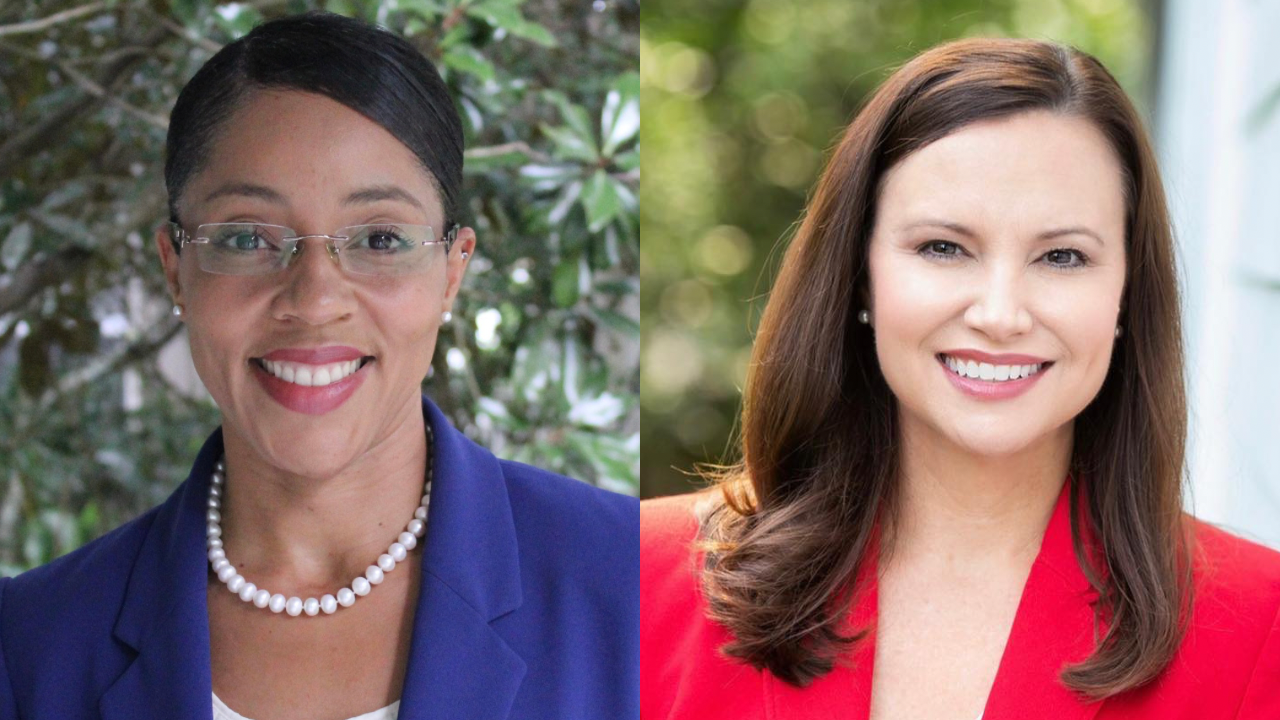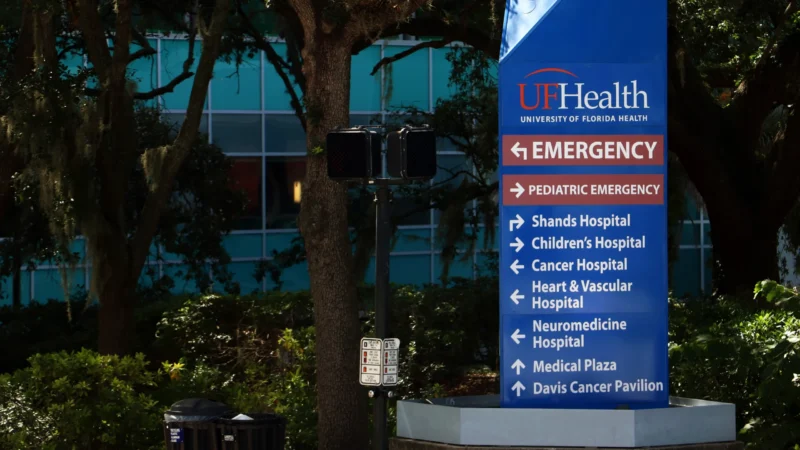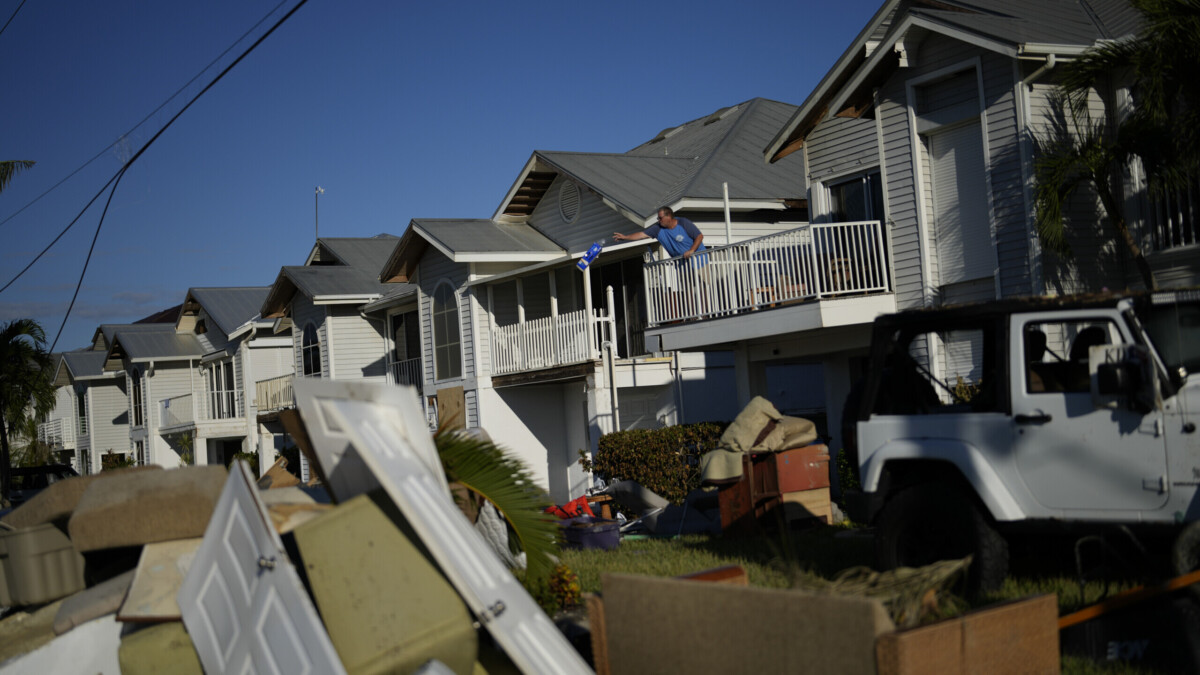Former Orlando-area State Attorney Aramis Ayala is making a “longshot” bid to unseat Republican Attorney General Ashley Moody, saying a key issue is the independence of Florida’s top legal officer.
But as with other contests this year for state Cabinet seats, the race between Ayala and Moody is an undercard to elections for governor and U.S. Senate and has made few waves.
During a news conference last month, Moody dismissed the idea of debating Ayala, saying she’d prefer “discussions with those that are serious about being an attorney general that enforces the law, indeed, and works with law enforcement.”
A former Hillsborough County circuit judge, Moody, 47, is the favorite in the race for a number of reasons, including incumbency, fund-raising, support from Gov. Ron DeSantis and former President Donald Trump and name recognition from media appearances on Republican-friendly television networks.
Ayala, 47, drew attention in 2016 when she became the state’s first Black elected state attorney, winning in the 9th Judicial Circuit in Orange and Osceola counties. She defeated two opponents in the Aug. 23 Democratic primary for attorney general and said the state’s chief legal officer should fight for all Floridians, not to support DeSantis’ political ambitions and Republican “cultural wars.”
“This past legislative session, I just saw the trampling on our rights. The conversations were becoming extremely harsh towards the people we should be serving,” Ayala said. “And I realized that you can’t sit and say nothing. … And that’s the job of the attorney general, to be an advocate, to provide for justice and get cover. And we were completely uncovered this entire legislative session, from voting rights to ‘don’t say gay,’ to the attack on teachers, all the way through the attack on women.”
University of Central Florida political-science professor Aubrey Jewett, who described Ayala as a “real longshot,” said being progressive helped Ayala win the state attorney’s race in 2016 but puts her out of step with many Floridians.
“Even if Florida Democrats at the top of the ticket do better than expected, or even win, it is difficult to imagine they will have coattails long enough to help Ayala beat Moody,” Jewett said. “Ayala’s best hope would be if a majority of Florida voters thought that some of the cases that Moody has gotten involved with — including supporting Texas Attorney General Ken Paxton’s effort to overturn Joe Biden’s election — were too extreme. But in the present Florida political climate, that does not seem likely.”
As state attorney, Ayala created a firestorm by saying she would not seek the death penalty, in part pointing to racial inequities in death sentences.
Then-Gov. Rick Scott removed Ayala from handling capital cases. Ayala challenged the decision, but the Florida Supreme Court backed Scott. Ayala did not seek re-election in 2020.
When asked how she would handle the death penalty as attorney general, Ayala pointed to creation of a statewide conviction integrity unit to investigate claims of innocence.
“We’re spending $51 million every single year in the state of Florida, and we are leading the nation in Death Row exonerations, meaning we get it wrong the most,” Ayala said. “It is incumbent upon us to make certain, number one, that we’re getting it right. With statewide conviction integrity, that would be the starting place for that, as well as to ensure that if we’re going to proceed with a death penalty, that they are the proper use of resources and that we are encouraging public safety and we’re deterring crime.”
A Plant City native, Moody worked in civil litigation for the Holland & Knight law firm before being appointed as a federal prosecutor and elected judge in 2006. In 2018, Moody defeated Democratic lawmaker Sean Shaw by 6 percentage points to become attorney general.
In office, Moody has drawn headlines as a legal cudgel for DeSantis and national Republicans. As examples, Moody has joined forces with DeSantis to file lawsuits challenging President Joe Biden’s policies on such issues as the handling of the coronavirus pandemic and immigration.
She also requested that the Florida Department of Law Enforcement investigate former New York City Mayor Michael Bloomberg for helping Florida felons pay outstanding legal costs so they could register to vote in 2020. The investigation ended without charges in 2021.
In addition, Moody signed Florida onto a multi-state brief at the U.S. Supreme Court backing an effort by Texas to challenge 2020 presidential-election results.
And lately, she backed DeSantis’ decision to suspend Hillsborough County State Attorney Andrew Warren, who had pledged not to prosecute cases under a new Florida law that bans most abortions after 15 weeks of pregnancy. More than 100 legal scholars and dozens of former judges, prosecutors and police chiefs have questioned Warren’s suspension, arguing that the move runs counter to professional standards, sets a dangerous precedent and violates the constitutional separation of powers.
During the Warren suspension announcement, Moody said ignoring laws means ignoring the will of the people.
“Let me tell you who makes the laws and decides what’s criminal. It’s you. It’s the people of this state through their elected representatives,” Moody said.
Moody, who did not respond to an interview request, has a massive financial advantage over Ayala as the Nov. 8 election nears.
As of Sept. 23, Moody had raised $8.13 million since the start of 2019 for her campaign account and the political committee Friends of Ashley Moody and had more than $6 million in cash on hand. She pumped $771,462 into media ad time on Sept. 23.
Ayala raised less than $30,000 in the first four weeks after her primary victory and didn’t list any assistance from the Florida Democratic Party. She had about $23,000 in cash on hand in her campaign account as of Sept. 23.
Among Ayala’s biggest contributors during the campaign has been former former professional basketball player Shaquille O’Neal, who contributed $3,000 shortly after she announced her bid for the office in March.






